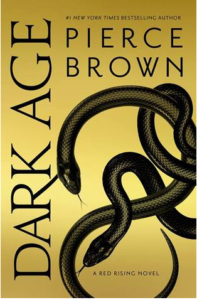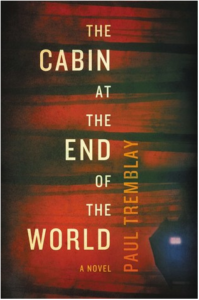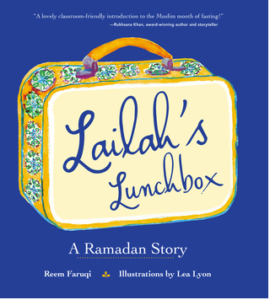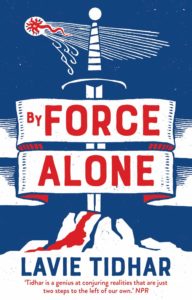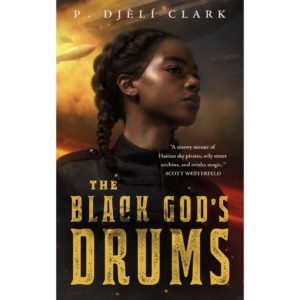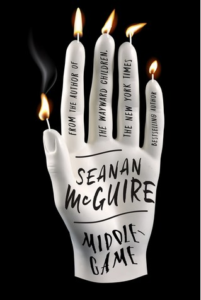My opinion of this book is pretty much equally divided: it is 50% atrocious and 50% adorable. Essentially, Naomi and Nicholas have been together for almost two years and engaged for almost a year of that. It’s November and their wedding is in January but invitations haven’t been sent yet. Naomi is having a million second thoughts, then realizes that Nicholas feels the same way and that they’re both seemingly pushing each other away in order not to look like the bad guy when the relationship fails. As soon as Naomi realizes this, all bets are off. The two engage in an escalating war of pranks and emotional digs but realize along the way that they actually do care about each other, and manage to repair their relationship and find their HEA.
 To begin with what I found atrocious: I’m the kind of person who finds prank shows irritating and doesn’t understand the impulse to laugh at your alleged loved one instead of with, so while there were genuine moments of hilarity to be found in the petty stunts they pulled on one another, I was also quietly aghast that they would expend so much energy this way. While everyone expresses love differently, I suppose, the real sticking point was the complete lack of communication between our two romantic leads. Naomi also had the unfortunate habit of assuming the worst of Nicholas, but that was sort of justified because he’s the kind of childish asshole who thinks it’s totally okay to make important couple decisions on his own or, worse, to defer them to his mother. As if that wasn’t bad enough, there’s a weird undercurrent of justifying emotional/spousal abuse, especially with the whole “you don’t need to work” phrase that Nicholas flings around several times. Naomi says it translates to “I will support you no matter what you choose, whether to work or not” but he never says that, or in any way inquires as to her feelings on the subject. There’s a huge difference between a spouse saying “you don’t need to work” and “you don’t have to work if you don’t want to.”
To begin with what I found atrocious: I’m the kind of person who finds prank shows irritating and doesn’t understand the impulse to laugh at your alleged loved one instead of with, so while there were genuine moments of hilarity to be found in the petty stunts they pulled on one another, I was also quietly aghast that they would expend so much energy this way. While everyone expresses love differently, I suppose, the real sticking point was the complete lack of communication between our two romantic leads. Naomi also had the unfortunate habit of assuming the worst of Nicholas, but that was sort of justified because he’s the kind of childish asshole who thinks it’s totally okay to make important couple decisions on his own or, worse, to defer them to his mother. As if that wasn’t bad enough, there’s a weird undercurrent of justifying emotional/spousal abuse, especially with the whole “you don’t need to work” phrase that Nicholas flings around several times. Naomi says it translates to “I will support you no matter what you choose, whether to work or not” but he never says that, or in any way inquires as to her feelings on the subject. There’s a huge difference between a spouse saying “you don’t need to work” and “you don’t have to work if you don’t want to.”
To the adorable: I loved that they finally figured out a way to open up to each other and really communicate. I loved that they realized that being partners means standing up for and supporting each other, and not being afraid to ask each other for help. While I worried that they’d sunk into this quagmire of miscommunication so early into their relationship, it was also great that they figured it out early and decided to make the conscious choice to repeatedly choose each other from then on. I did think that these fuckers didn’t discuss enough of the important things before getting married tho, and that therapy should definitely have been on the table for both of them. For fuck’s sake, folks, DISCUSS KIDS BEFORE GETTING MARRIED (also finances, but at least they had that sorted.) That said, the scenes with Nightjar made me cackle aloud with glee.
To the unique: I was actually pretty impressed with how this book felt like a psychological thriller in its earlier chapters. Only knowing that this was a romance novel kept me from being convinced that one of them would end up literally murdering the other. I also enjoyed the riff on the War Of The Roses movie from the 80s tho that didn’t help with convincing me this wouldn’t turn out to be a psychological thriller after all.
You Deserve Each Other was a fast read that was as amusing as it was appalling, with several moments of really great writing. I don’t think Naomi and Nicholas had a healthy relationship, but I think they could eventually get there, with communication, consideration for each other’s personhood, and commitment to choosing one another. As an Asian Muslim, tho, I totally rolled my eyes when they said that weddings are supposed to be about the married couple and not their families. While I fully respect the right of couples to elope, and feel that couples absolutely should be in charge of the planning of their own weddings, I do think that wedding ceremonies are meant to celebrate the joining of families as well. This isn’t, of course, possible in every circumstance, but ignoring a chance to expand the community of people who are important to you just seems unnecessarily churlish. Also, the whole “cutting off your family” aspect coupled with the “you don’t need to work” stuff mentioned above ticked another box on my “Is Your Spouse An Abuser?” checklist. If these were real people, I’d absolutely want to check in on them from year to year to make sure they’re still okay.
Also, it would be really nice if Penguin would let Overdrive provide Kindle copies of books instead of forcing me to read this on my phone, grr.

